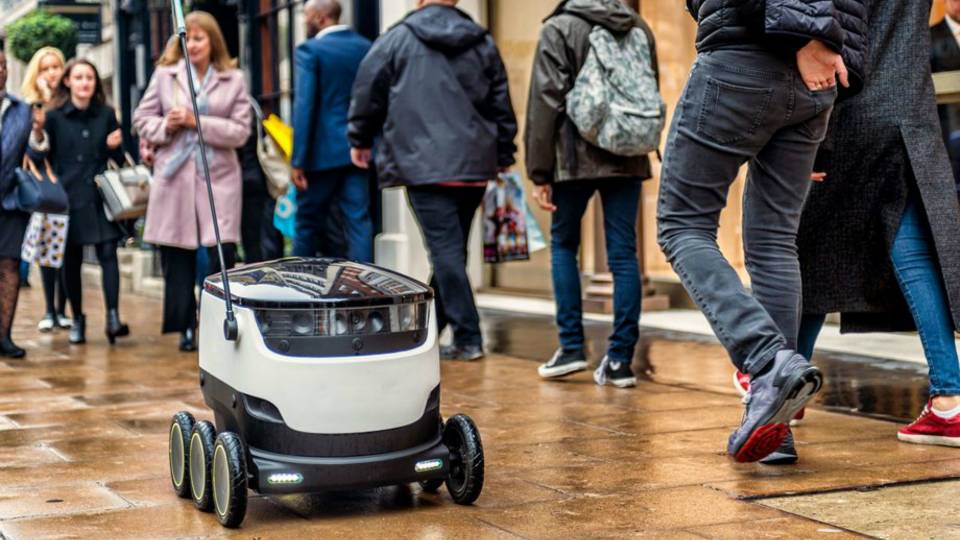Robots Will Start Delivering Food to Doorsteps in Silicon Valley and Washington, D.C.
Starting today, residents and businesses in Redwood City, Calif., and Washington, D.C., can get food delivered right to their doors — via robot.
Starship Technologies, an Estonia-based startup created by two Skype co-founders, Ahti Heinla and Janus Friis, will put its autonomous ground-delivery robots to work delivering food with Postmates in Washington, D.C., and DoorDash in Redwood City, Calif.
The six-wheeled robots are a little under two feet tall, weigh about 40 pounds empty and travel four miles per hour — walking speed. The idea is that one day soon these autonomous rovers will share sidewalk space with pedestrians on their own, but for now they’ll be accompanied by handlers — people walking alongside each robot as it makes its deliveries. The handlers will take notes on how well Starship’s robots perform and intervene if something goes wrong.
Each rover works like a delivery person: It goes to the restaurant to get loaded up (with its handler in tow), delivers to the address and then goes to the next restaurant to do it again. Neither Postmates nor DoorDash will charge extra for the robot experience. And Postmates lets customers opt out if robotic delivery isn’t their bag; DoorDash doesn’t give an option. The robots are expected to make around 10 deliveries a day.
Starship announced it received $17.2 million in seed funding last week, backed by Daimler AG, Shasta Ventures, Matrix Partners and others. Its robots have made deliveries in more than 40 cities in Europe and work with Just Eat and Pronto in London, where they have been delivering food since last summer.
Last year, Dispatch, another robot-delivery startup, secured $2 million in seed funding from Andreessen Horowitz and has completed pilot programs at two universities in California.
If the concept ever comes full swing, robot delivery may make sense for startups that are trying to offer on-demand delivery, a business model that sounds good in theory but has proven incredibly difficult to execute.
A handful of well-funded on-demand service startups have gone under recently. Sidecar (an Uber competitor), Spoonrocket (meal delivery) and Homejoy (house cleaning) all closed shop, citing a hard time raising money, problems with unsustainable pricing or difficulty retaining workers.
For now, Starship’s robots will make one delivery at a time and will only operate during the day.





















